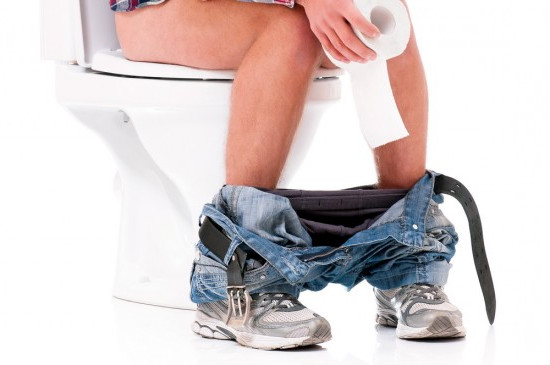Post-operative patients of major back or gallbladder surgery and hernia commonly experience constipation. Constipation leads to the formation of vey hard stools which are very difficult to pass out of the large intestine (colon). This is why constipation patients suffer a great deal of pain during bowel movements. Vomiting, nausea, bloating and abdominal pain are among the other symptoms that might be experienced by the patient.

What Causes Constipation After Surgery?
There are a number of triggers of constipation that occur during the recovery period of the patient after surgery. The following is a list of the common triggers and why they can be so tricky to deal with.
1. Pain Medication
The prescription pain relief medications are known to cause constipation. Your risk of constipation will increase if you are advised to take high doses of pain medications or have been using them for a long period of time.
2. Anesthesia
Anesthesia is considered by most patients as a drug that induces sleep. It is in fact a drug that paralyzes the muscles of the arms and legs along with those of your intestines too while you are under surgery. Thus, no food is pushed along the intestinal tract as there are no muscle contractions. So, until the intestines remain paralyzed, the movement of feces ceases.
3. Diet Restrictions
Constipation can be caused also because of the diet restrictions that the patient has to endure after surgery. Often patients are asked by the doctors to eat a liquid diet in the days before the surgery or keep their stomachs empty for a day or two before the operation. This is done to facilitate the surgery and recovery process but it is not good news for your excretory system as it causes fluctuation in the fluid levels in the body that help in the excretion of stools by softening them and letting the waste pass out of the body easily.
4. Physical Inactivity
Regular exercise and an active lifestyle are among the necessary aspects of having smooth bowel movements. However, post surgery patients are often advised bed rest as it is important part of the body’s recovery process. Thus, the physical inactivity in the wake of the surgery coupled with the sedentary lifestyle makes it hard to maintain proper bowel function and can result in constipation.
Treatment for Constipation After Surgery
If you want to minimize or reduce your discomfort or pain that might result due to less bowel movement after surgery, then the following measures can prove to be of great help to you.
1. Exercise
Start moving about and performing light exercise as soon as you can after your surgery. You can accelerate the healing process and bring back your bodily functions to normalcy simply by going out for a walk.
2. Restrict Use of Narcotic Medication
Narcotic medications are excellent pain relievers but they can cause constipation by slowing down the bowel movements. Thus, it is best to restrict the use of narcotic pain relievers like Vicodin, Oxycontin and Percocet and try to replace them with non-narcotic medication like regular or extra strength Tylenol for controlling your pain after surgery.
3. Fiber Laxative
If you have suffered from constipation in the past, then it is important that you start thinking about using a fiber laxative after the surgery to reduce your chances of post surgery constipation.
4. Stay Hydrated
Drinking at least 40 oz of water and non-caffeinated fluids like apple cider vinegar and prune juice, which are effective natural laxatives on a daily basis can also save you from constipation.
5. Consume Fiber-Rich Foods
Include fiber-rich foods in your diet like whole grains, fresh fruits, beans, vegetables and bran cereals in your diet to stimulate the intestines and try to avoid foods like cheese, processed foods and meat as they contribute to constipation.
6. Avoid Large Meals
It is better to avoid having large meals at specific times of the day. Go for frequent but smaller meals throughout the day to aid your digestive process.
7. Constipation Medication
The surgeon might prescribe you a constipation medication to ease your symptoms or recommend an over-the-counter treatment like an enema or stool softener. Any over-the-counter treatments must not be used unless they are discussed with the surgeon first as he needs to kept in the loop regarding your medications. Remember to take the stool softener as a precautionary measure rather than using it after the symptoms have developed.
Risks of Constipation After Surgery
You would run the risk of impaction if the dehydration rate is high or you remain constipated for a long time after surgery. Following the physician’s advice regarding postoperative care can help in preventing the problem to become this severe.
Besides impaction, there are a number of other risks of post surgery constipation:
- If you don’t have a bowel movement after surgery for a long time, the hardened stool will damage your intestines resulting in the need of colostomy.
- Because of your straining to force a bowel movement, you can also experience rectal prolapsed, shortness of breath, unusual heart rhythms and hemorrhoids.
- The straining can also endanger the external and internal incisions that were made for the surgery can make them open up as well. For open heart surgery patients, the straining can be even more dangerous as the unusual heart rhythms it produces are harmful to the recovery. Colon or weight loss surgery patients might damage the surgical area because of constipation.
